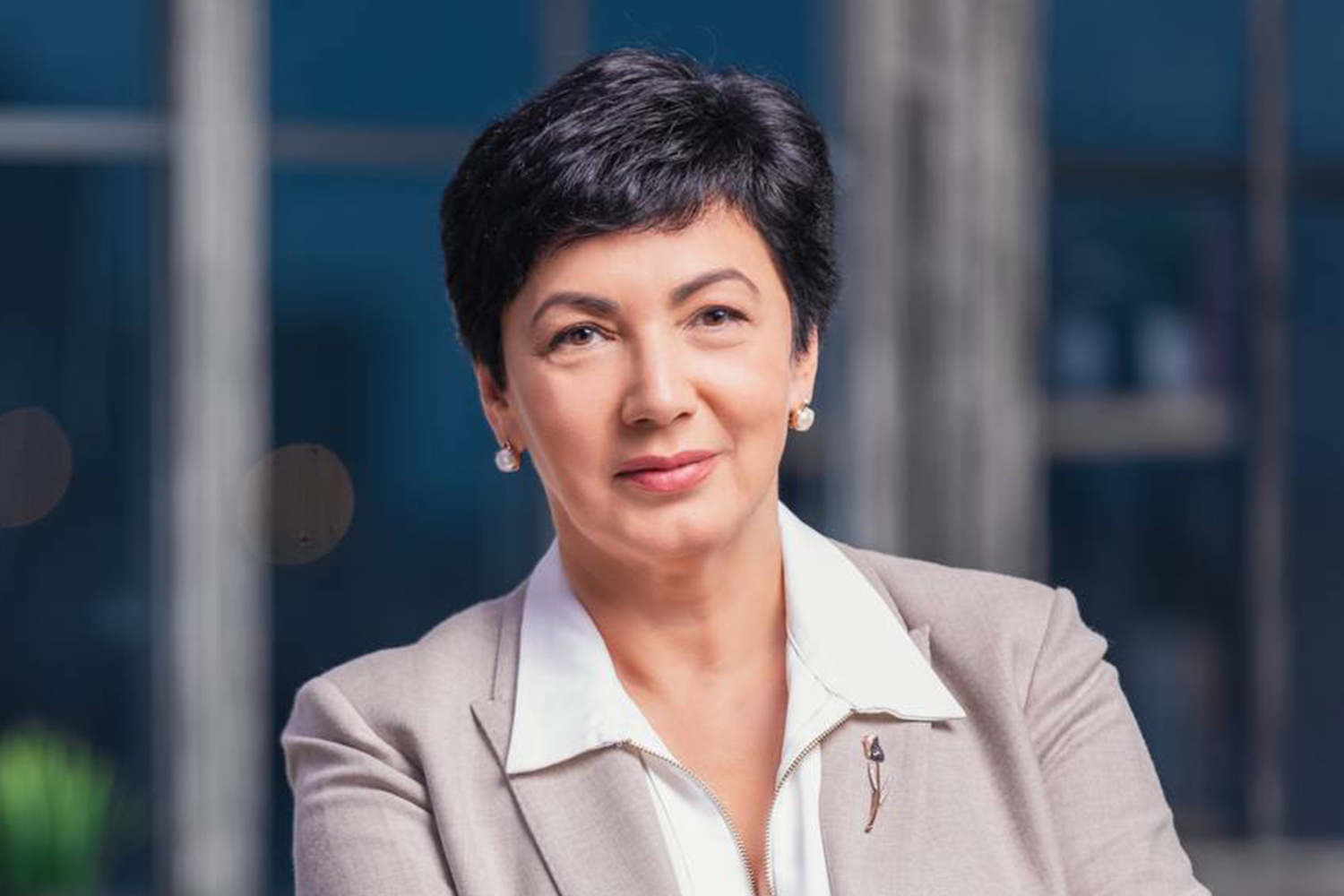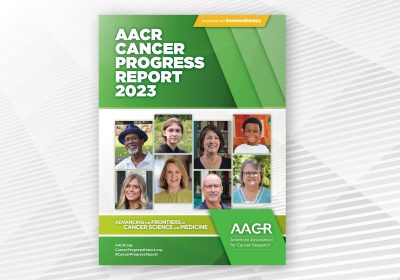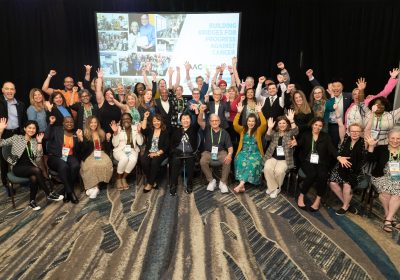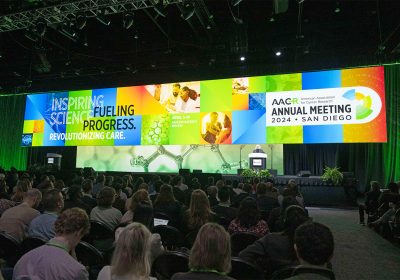
AACR Supports Cancer Care, Research in Ukraine
Olena Yefimenko, MD, director of the National Cancer Institute of Ukraine, talks about the challenges to care, treatment, and research in her country.
When the Russian military invaded Ukraine on February 24, 2022, basic research nearly ground to a halt, and clinical care and research were stymied. Since then, hundreds of medical facilities, including oncology clinics, have been destroyed or seriously damaged, but researchers and clinicians have persevered, with most work continuing except in areas of heavy fighting or significant destruction. And although no new clinical trials have been launched in Ukraine since the war began, “it is no exaggeration to say that about 80% of cancer patients didn’t have to interrupt their treatment,” said Olena Yefimenko, MD, director of the National Cancer Institute of Ukraine in Kyiv, thanks to supplies that flowed into the country from around the world.
In April 2023, Dr. Yefimenko and three other leaders from Ukraine’s medical and cancer community traveled to the United States to attend the American Association for Cancer Research® (AACR) Annual Meeting 2023 in Orlando, Florida, thanks in part to funds raised by the AACR. While there, Dr. Yefimenko spoke with Cancer Discovery’s Suzanne Rose about the difficulties they have faced and how they would like the Ukrainian cancer enterprise to grow in the years to come.
Among the challenges has been initiating and maintaining cancer clinical trials. Starting new cancer clinical trials has not been possible under wartime conditions, but ongoing trials have not been interrupted, Dr. Yefimenko said.
“We even continued through the [Russian] occupation,” she said. “We provided therapy for those already in clinical trials, taking them through the end of the trial. The patients in our care who had participated in trials got their treatment and continued receiving care.”
Cancer screening and diagnosis, however, have suffered during the war.
“A lot of young medical professionals had left the country; nurses with small children had left Ukraine during evacuation. A lot of pharmacies closed. Medical institutions, small facilities closed in towns and villages,” she said. “But Doctors Without Borders helped us with mobile medical care visits to houses in the villages after the occupation. The diagnostic teams included gynecologists, cardiologists, psychologists, and so on. Referrals were often given for further screenings and diagnostics.
“To say that we were conducting massive oncological screening, no. That didn’t happen, unfortunately. We don’t have enough radiologists,” she added. “We didn’t turn away anyone who would be coming to any of our clinics, but we couldn’t do preventative outreach efforts.”
This article is adapted from an interview appearing in the AACR journal Cancer Discovery. Portions of the interview can be viewed here.
Dr. Yefimenko said Ukraine requires educational help to train its doctors and nurses, advocacy help to recover clinical trials, and material aid to rebuild destroyed clinics and purchase medicines. The AACR is providing resources and assistance to the Ukrainian people, including its cancer patients and their families, oncology professionals, and cancer researchers.
The AACR Ukraine Crisis Relief Fund was established by the AACR to help address the many needs in Ukraine and granted funding to two organizations working to advance cancer research and care:
- The Tabletochki Foundation provides direct care to pediatric patients with cancer and their families by securing medications, helping to cover costs of care in Ukraine and abroad, and providing psychosocial and palliative support. In addition, the foundation purchases laboratory equipment and testing reagents and contributes to training and professional development opportunities for medical personnel.
- The Peace and Development Foundation promotes advances in cancer care by bringing Ukrainian oncologists and researchers to the United States—including Dr. Yefimenko and her three colleagues—to learn from and share with professionals at medical and research facilities.





